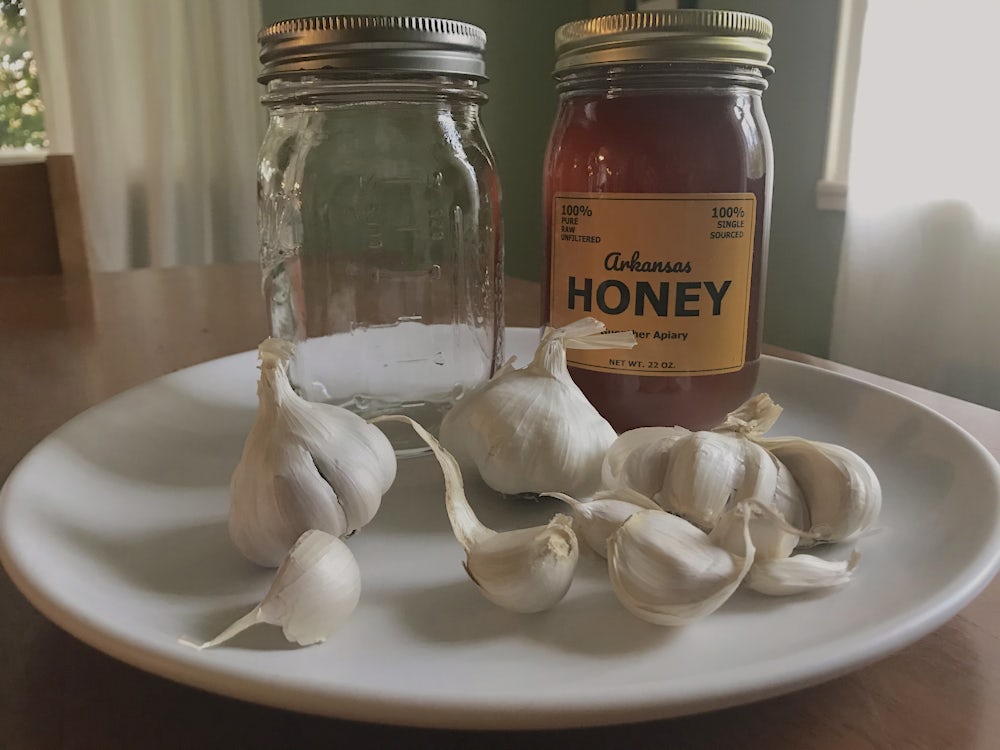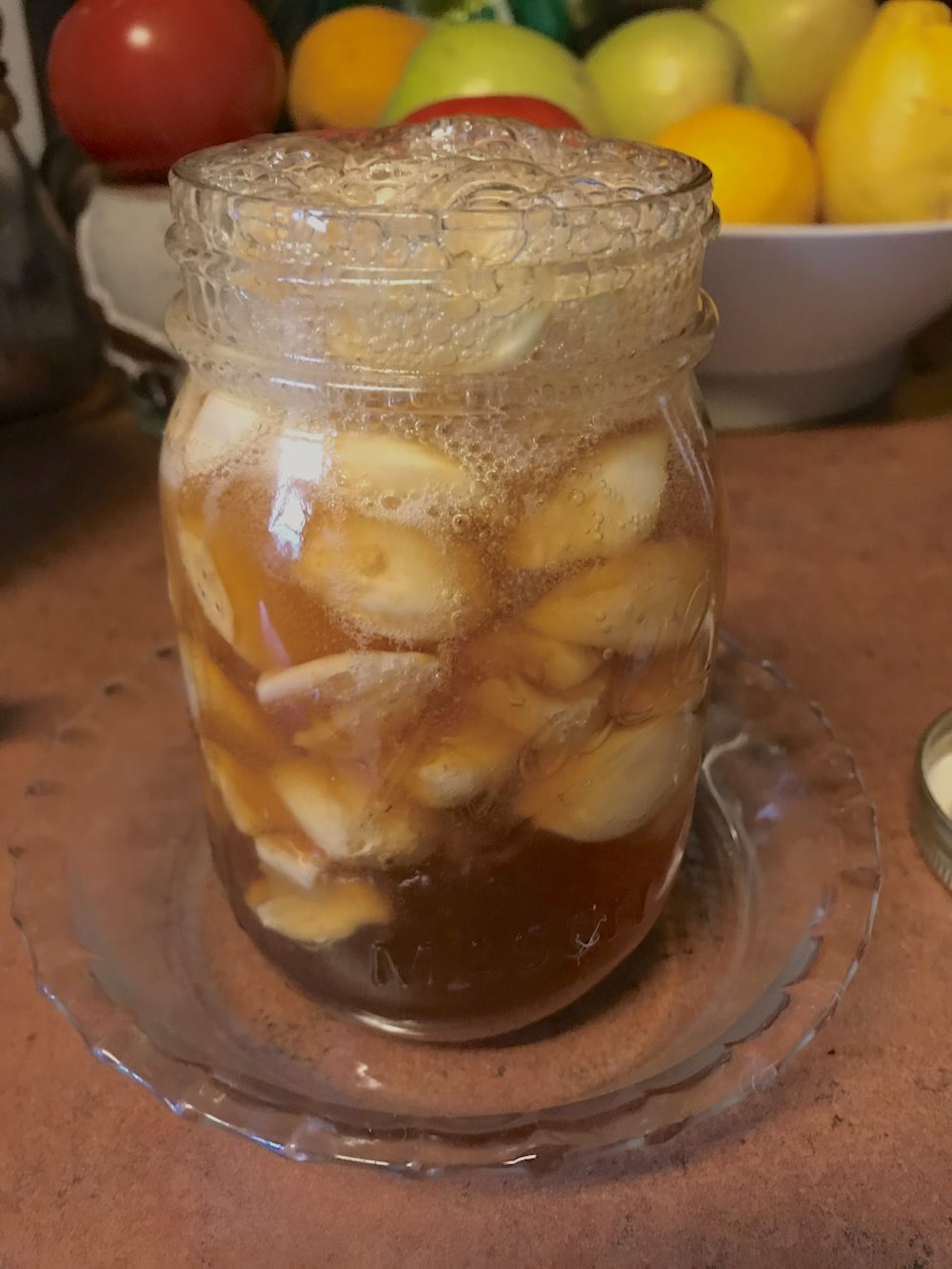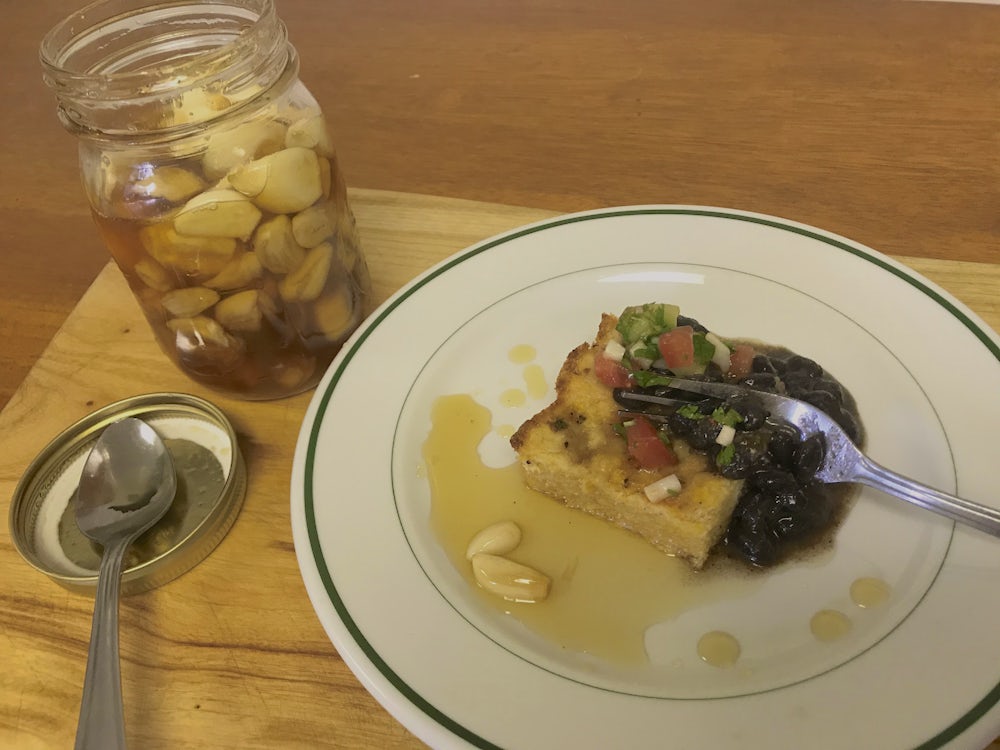While you’re stuck at home during the pandemic, why not take a few minutes to start a science experiment and make something delicious at the same time?
Fermented honey garlic requires just three things that you most likely already have at home, so no perilous shopping trip required. You just need raw, unfiltered honey (local is best), peeled garlic cloves and a Mason jar.

You need to wait at least three days to let the garlic ferment, and letting it go for longer is even better. Don’t let that dissuade you, though — the process is so much fun to observe that you’ll have fun just watching the science happen. If you’re self-quarantining with kids, this could be a fun and easy science experiment to pass the time while maybe even sharing a chemistry lesson.
Even after the fermentation slows down and you notice fewer bubbles, you can keep the ferment going at room temperature for at least a week or two. The honey will continue to get thinner, and the flavor will become increasingly deep and complex. The garlic will become more and more mellow as the fermentation chemically “cooks” it. Once you can tell that the bacteria have feasted on most of the available sugar, you may choose to top-off your jar with more raw honey to keep those wonderful probiotics happily fed. If you don’t add more honey, I suggest keeping it in the fridge after a week or so — if your little pint of goodness last that long, of course!

Fermented Honey Garlic

When the honey garlic is ready, both ingredients can be incorporated into limitless recipes. My personal favorite way to use both the honey and the garlic is to throw together a simple vinaigrette for my salad, but I also use both as flavoring for everything from marinades to soup. Just be aware that if the honey and garlic are cooked above 115°F, those precious probiotics will become inactive. Honestly, I dare you not to just grab a spoonful of honey (or a full clove, if you’re more adventurous) as a little pick-me-up whenever you pass by your golden jar of magic.
When I first brought this story idea to our editors, they expressed concern about the dangers of fermentation and the dreaded botulism. I assured them that fermented foods are not at risk of the toxin produced by the botulinus bacteria. As soon as any good bacteria take root and begin to raise the pH of the product, it becomes too acidic for the toxin, which can only thrive at 4.6 or below. In our case, the natural antibacterial properties of both ingredients further ensure a safe product.
DO NOT try to infuse your olive oil with garlic. In that case, none of the safety nets above would apply, and you could very well run the risk of creating an unsafe product.
Also, while there's no evidence honey, garlic or fermented foods can defeat the COVID-19 virus we're all so worried about right now, garlic is a good source of several vitamins and minerals, and there's some evidence that fermented foods are helpful for digestive health.
